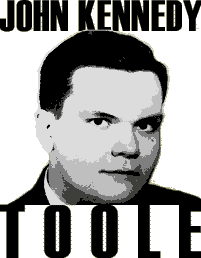
There was a story on the radio about the English Screen Actors Guild. It seems a lot of actors were not joining because so many of the names had been taken. So if your name just happens to be Roger Moore, and you wanted to keep your name and join the union you'd have to wait until Roger Moore died before you could do so.
What would it look like if writers had to do the same for words? Once a person realizes that they want to be a writer they'd put in a petition for a batch of words. You can only get new words when someone dies and there's a lottery held and you put in a bid for a word. Or you can trade words with another writer. Imagine Toni Morrison calling you and telling you that she'll trade you August, a word she had bought from the Faulkner estate with the money she made as an editor. In return she'd like your word beloved because she has this story she's trying to get out of her marrow. Marrow she tells you is a word that was once owned by Charles Chestnutt, you know, the famous turn of the century African-American writer.
Sensing your hesitation she agrees to toss in Carson McCullers' and Dorothy West's old word wedding because she bought that one for five dollars from this writer who was just trying to raise some money to buy groceries for a week, but she eventually realized that like most women of her generation, that word might not be worth as much. Therefore she'll throw it into the trade for beloved because you might be able to get some use out of it.
Right now, as much as I love Morrison’s work, the author whose words I’d probably most want to own, or in fact may owe a huge debt too because of how his language parachuted throughout my speech in the last year is John Kennedy Toole. Immediately after reading it Toole’s A Confederacy of Dunces immediately shot up to the top of my favorite books list. It’s wonderfully imagined and even more exquisitely written. Words that for me always seemed mundane, trite and sometimes even harmful exploded off the pages of A Confederacy of Dunces with a vigor that I have never encountered in another book.

Prior to reading Toole words such as “abomination,” “corruption,” or “abortion,” had become stale in my writing and thinking; and if you had asked me what a “pyloric valve” was, I would probably told you to ask your mechanic. But as I read A Confederacy of Dunces these words blossomed again like a plant long thought dead which for inexplicable reasons buds anew one spring.
Well enough of my thoughts on the man’s words, I’ll let them speak for themselves:
A firm rule must be imposed upon our nation before it destroys itself. The
Some how, some way, instead of thinking about the fact that this week marks the 37th anniversary of his suicide, I wonder if we would not improve our theology and geometry by giving some serious thought to the import of those words in our contemporary moment.





